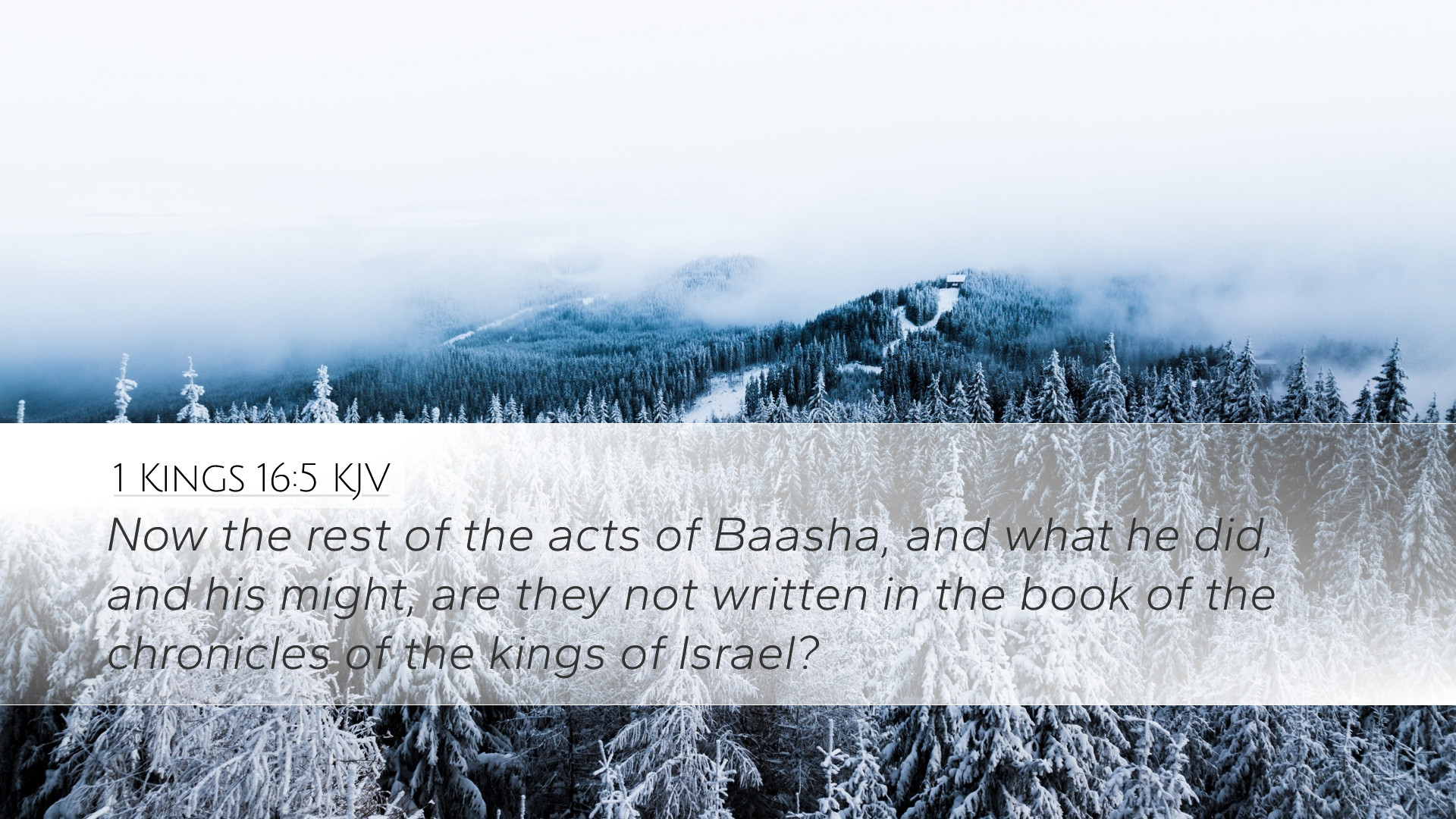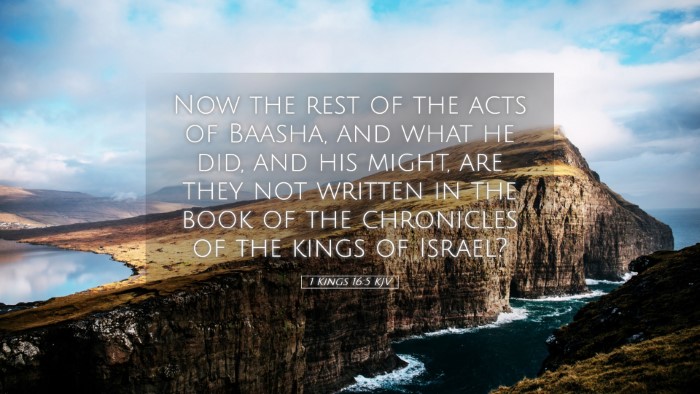Commentary on 1 Kings 16:5
Verse Reference: 1 Kings 16:5 - "Now the rest of the acts of Baasha, and what he did, and his might, are they not written in the book of the chronicles of the kings of Israel?"
Introduction
This verse serves as a pivotal transition in the narrative of the Kings of Israel, highlighting the legacy of Baasha and the chronicling of the events that shaped the kingdom. The scope of this commentary, synthesized from public domain sources, aims to draw insights that are pertinent for pastors, students, theologians, and scholars alike.
Contextual Background
The historical backdrop of 1 Kings denotes a period of decline in the spiritual and political integrity of Israel. Baasha, who began his reign by assassinating Nadab, the son of Jeroboam, symbolized both a continuation of treachery and a deviation from godly obedience. This verse hints at a broader historical context, imbued with moral complexity and divine judgment.
The Legacy of Baasha
-
Matthew Henry's Perspective: Baasha is depicted as one who was not merely a ruler but had his own might and accomplishments. Henry notes that despite Baasha’s military prowess and political scheming, his legacy was tainted by idolatry and rebellion against God.
-
Albert Barnes' Insight: Barnes emphasizes the significance of the "book of the chronicles of the kings of Israel." He suggests that the chronicler intended to document the unfaithfulness of Israel’s kings, indicating that historical records serve both as a testament to human failings and God's ongoing sovereignty.
-
Adam Clarke's Commentary: Clarke brings attention to the nameless acts of Baasha recorded in history. He implies that while some acts were remarkable, they were overshadowed by the spiritual ineptitude that plagued his reign, reflecting the deeper theological principle that mere human strength is impotent without divine favor.
Theological Reflections
The verse opens a dialogue regarding divine providence and the chronicling of history. Each monarch's reign was marked by a record of deeds, victories, and failures that God used to teach subsequent generations about obedience and repentance.
1. Historical Records and Divine Purpose
Often, historical accounts in Scripture serve as reminders of God’s justice and mercy. The chronicler's recording of Baasha’s acts invites believers to consider how God interweaves His purposes amidst human actions.
2. The Nature of Power and Legacy
Both Henry and Clarke highlight the transient nature of earthly power. Baasha’s might, while impressive, could not alter the course of God’s plan for Israel. This underscores a critical lesson for contemporary leaders: legacy is forged not just through achievements but through faithfulness to God.
3. The Call to Reflection
In examining Baasha’s reign, scholars and pastors are prompted to reflect on their own leadership and the current state of ministry within their contexts. Are today's leaders, like Baasha, concerned with the act of ruling, or are they striving toward godliness?
Practical Applications
- For Pastors: Consider how your own efforts and sermons align with faithfulness to God's message. Reflect on what legacy you are leaving within your congregation.
- For Theologians: Engage with the historical-critical method to explore deeper meanings in the texts. How do the records of past kings inform contemporary theological debates on authority and governance?
- For Students: Draw connections between historical figures like Baasha and modern leaders, evaluating what it means to lead righteously in a world that often prioritizes power over moral integrity.
Conclusion
1 Kings 16:5 encapsulates not only the end of Baasha’s narrative but also the enduring truth of God’s sovereignty over history. Each act, whether honorable or disgraceful, contributes to the grand tapestry of divine revelation. As we study these lessons, may we strive for a faith and practice that honors God amid our pursuits and legacies.


